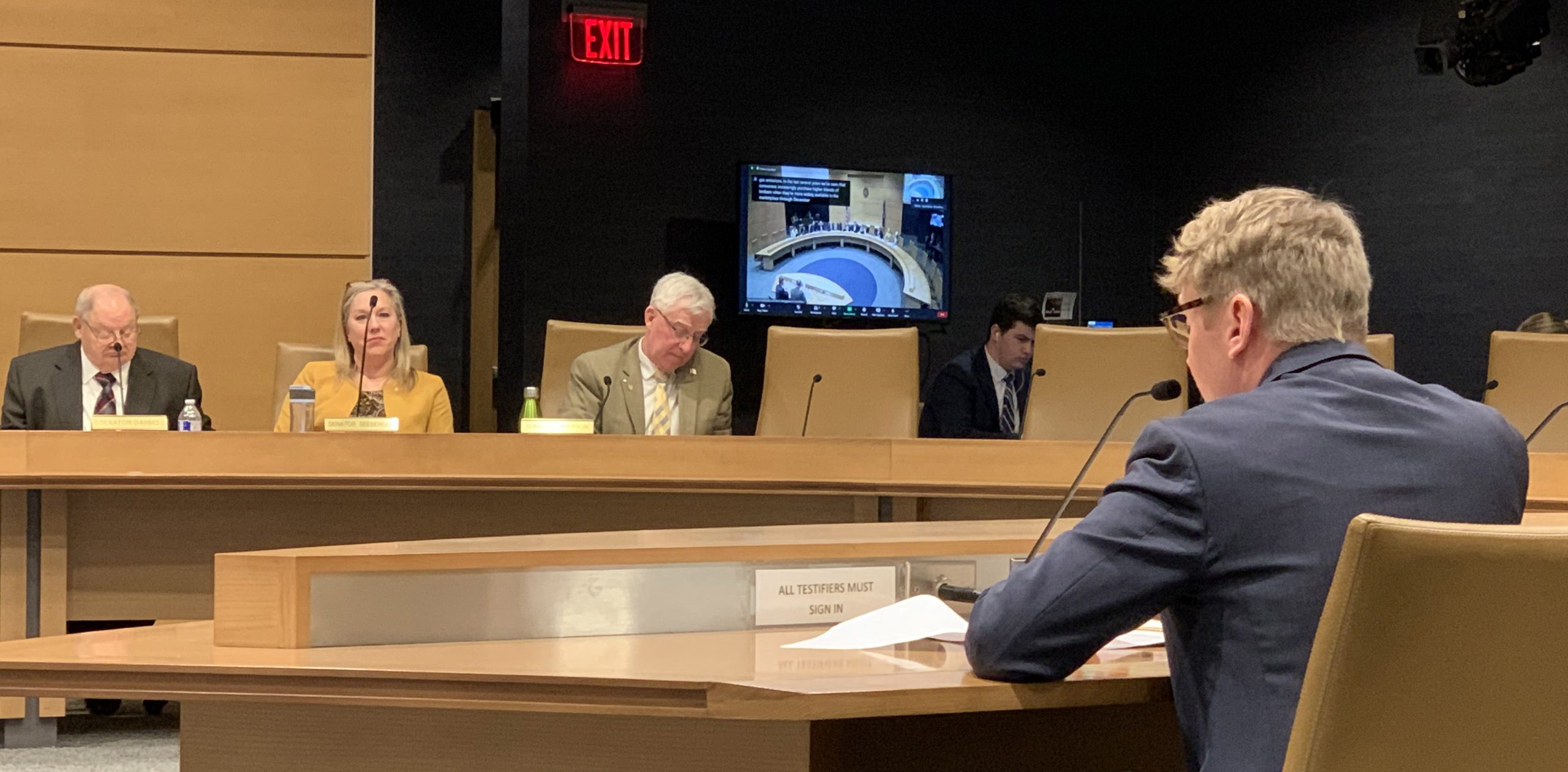Minnesota Bio-Fuels Association’s (MN Bio-Fuels) executive director, Brian Werner, testified at the Minnesota Senate Agriculture, Broadband and Rural Development Committee on Feb 13 to support a biofuel infrastructure financial assistance bill and a bioincentive program bill for advanced biofuels.
The biofuel infrastructure financial assistance bill (Senate File 1246) calls for $6 million grant funding per year in fiscal years 2024 and 2025 for retailers to upgrade their equipment to offer E15 and higher blends of ethanol.
“The Minnesota Bio-Fuels Association strongly supports Senate File 1246 – and all other biofuel infrastructure investment proposals including the Liquid Fuel Modernization Act – because they will help us reach statewide E15 retail compatibility and lead to immediate and affordable emissions reduction via the use of low carbon ethanol in our transportation fuel supply,” Werner said in his testimony.
He said such investments in biofuel infrastructure would help Minnesota reach a 15 percent blend rate.
“In 2003, before the Renewable Fuel Standard was enacted, Minnesota had the ambitious idea to require that all gasoline sold in the state contain 10 percent ethanol as a way to provide certainty in the agriculture markets and acheive energy self-reliance. We still have a long way to go to meet our statutory petroleum replacement goal of 30 percent biofuel by 2025, but bills like Senate File 1246 are a strong start in helping us get there while maintaining Minnesota leadership on renewable fuels,” Werner said in his testimony,” Werner said.
Meanwhile, the bioincentive program bill (Senate File 1178) would ensure the program has adequate funding moving forward and repay facilities that were underpaid in previous years. The bioincentive program is aimed at encouraging commercial scale production of advanced biofuels, renewable chemicals, and biomass thermal energy. Biofuels must acheive a 50 percent reduction in greenhouse gas emissions compared to gasoline to benefit from the program.
“Minnesota ethanol plants have increasingly been making capital investments necessary to develop and produce next-generation, advanced biofuels made from celullosic biomass. While most ethanol today is produced from starch and sugars contained in corn, several Minnesota Bio-Fuel producers have been able to bring to market advanced bioufuel made from the non-edible fibrous material in each kernel of corn – sometimes refered to as ‘corn kernel fiber’ ethanol,” Werner said.
However, he said many eligible plants have been reimbursed for only a portion of their advanced biofuel production in recent years under the bioincentive program due to inadequate funding. Werner said the new bioincentive program bill would provide sufficient funding to reimburse those facilities for their existing production gallons and spur additional investments in low-carbon fuels.
“We’ve seen the federal government – through the Inflation Reduction Act – has moved in a big way to incentivize the production of cleaner transportation and aviation fuels. Complementary state investment through legislation like Senate File 1178 will ensure that Minnesota continues to harness the power of our state’s rich agricultural, forestry, and energy resources to reduce transportation-related greenhouse gas emissions,” he said.

